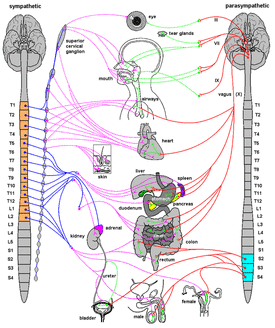Dizziness and blackouts
|
Syncope is the medical term for a blackout. Syncope is caused by a sudden lack of blood to the brain. The most common type is known as reflex or vasovagal syncope. This is a transient condition resulting from intermittent dysfunction of the autonomic nervous system, which regulates blood pressure and heart rate. Sometimes people can feel as though they are about to have a blackout but don't actually loose consciousness - this is called pre-syncope.
Syncope is common problem and may get mistaken for an epileptic fit. Sometimes the patients I see have already been referred to a neurologist as the general practitioner is concerned the patient may have had a fit. It is vital to make sure that syncope and epilepsy are differentiated because the treatment and prognosis are completely different. This is where specialist assessment is important. The symptoms of syncope are very variable both between different people and also between different episodes. Most commonly people experience light-headedness, dizziness and nausea. Some people will feel very hot and clammy, sweaty and complain of blurring of the vision and ringing in the ears. Many people are described as going pale. Generally autonomic nervous system causes of syncope are commoner in young people less than 30 years old. Syncope in older people is more likely to be due to a rhythm disturbance of the heart. One group of autonomic dysfunction I am interested in is called Postural Orthostatic Tachycardia Syndrome (PoTS). There has been a growing understanding and recognition of this condition but still many doctors have not even head of it. When patients are suffering with syncope we often find they also have postural tachycardia (ie a fast heart rate when they stand up). This condition is also associated with severe fatigue and exercise intolerance. Usually the blood pressure remains normal although sometimes fainting may occur. Sometimes rather than episodes of dizziness the patient also experiences exercise intolerance, fatigue and other non-specific and chronic symptoms such as joint pains, dislocations of joints, and abdominal problems. These additional symptoms suggest the possibility of Ehlers-Danlos. There is also a strong relationship between autonomic disturbance Ehlers-Danlos syndrome (Type 3) or the hypermobility syndrome. This syndrome affects about 1 in 10,000 people and it is a genetic condition. Usually there are mutations in either of two genes (Vascular EDS and Tenascin-X deficiency EDS). The condition is characterised by joint hypermobility and sometimes easy bruising. People also have joint instability and chronic musculoskeletal pain. Patients with the hypermobility type may experience frequent joint dislocation with or without trauma and as a result pain is a common, severe, and a lifelong symptom of this type. Additionally, osteoarthritis is common at a young age. Patients may also experience bowel disturbance and be labelled wrongly as having irritable bowel syndrome. There is also an association between this condition and chronic fatigue syndrome. People with Ehlers-Danlos syndrome hypermobility type may have mitral valve prolapse and it is possible that mild mitral valve prolapse may explain some of the chest pain and palpitations experienced by people with this form of the disease. |
